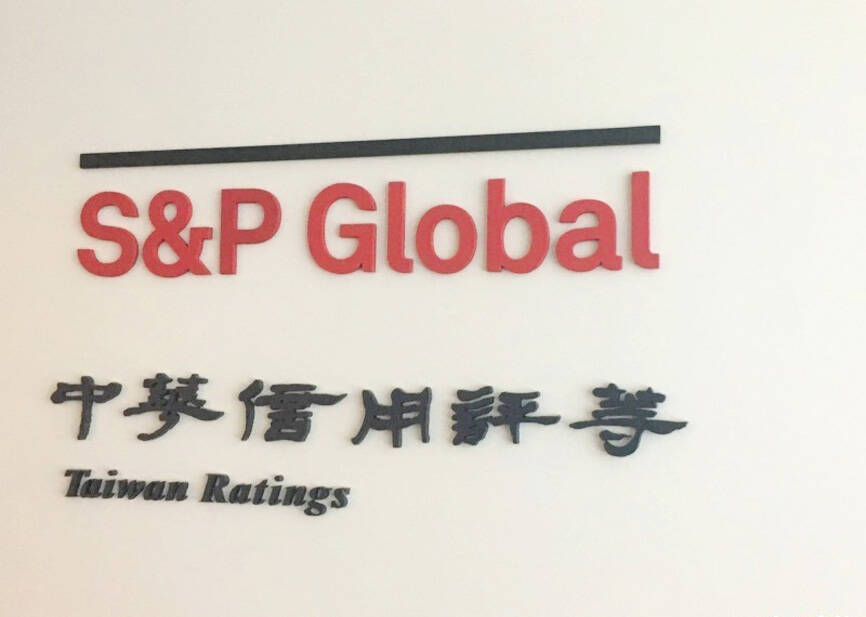Taiwan’s corporate bond issuance this year has hit a seven-year low, as companies scale back offerings on expectations that local interest rates have peaked and could move lower.
Taiwanese companies issued US$533 million of New Taiwan dollar bonds last month, a third of the total a year earlier, Bloomberg-compiled data shows. Total issuance from January to last month fell to US$9.02 billion, the lowest level since 2017.
Those numbers do not include life insurers, which have issued a record number of subordinated bonds to meet capital requirements and have attracted buyers with the notes’ higher-than-average yields.

Photo: Wu Chia-ing, Taipei Times
The broader slowdown contrasts with the bond market bonanza seen in most of the rest of Asia, where issuance has surged on increasing appetite for yield. Taiwan’s interest rates sit at a 16-year high of 2 percent, making nonfinancial firms reluctant to issue bonds.
“Companies take account of global market conditions when making capital and cost allocations,” Hua Nan Securities (華南永昌證券) fixed income trader Sam Chang said.
As the Federal Reserve and other central banks start looking toward policy easing, companies are waiting to see if those decisions would also influence Taiwan, he added.
Also potentially denting investor demand are the subordinated bonds issued by insurers.
Domestic bond investors have allocated a lot of capacity to bonds issued by Taiwanese life insurers, so that could also have some implications on demand, Taiwan Ratings Corp (中華信評) senior director Andy Chang (張書評) said.
With the timing of any rate cut in Taiwan uncertain, some companies are seeking out alternative funding routes, such as bank loans and commercial paper.
Commercial paper issued by Taiwanese companies rose 15 percent in the first six months of the year to NT$10.4 trillion (US$317 billion), compared with the same period last year, central bank data showed.
“For bank loans, large corporates have nice bargaining power as the banking environment is quite competitive,” Andy Chang said.
Commercial paper comes in shorter tenors, providing cheaper costs under the current yield curve, he added.

Nvidia Corp’s demand for advanced packaging from Taiwan Semiconductor Manufacturing Co (TSMC, 台積電) remains strong though the kind of technology it needs is changing, Nvidia CEO Jensen Huang (黃仁勳) said yesterday, after he was asked whether the company was cutting orders. Nvidia’s most advanced artificial intelligence (AI) chip, Blackwell, consists of multiple chips glued together using a complex chip-on-wafer-on-substrate (CoWoS) advanced packaging technology offered by TSMC, Nvidia’s main contract chipmaker. “As we move into Blackwell, we will use largely CoWoS-L. Of course, we’re still manufacturing Hopper, and Hopper will use CowoS-S. We will also transition the CoWoS-S capacity to CoWos-L,” Huang said

Nvidia Corp CEO Jensen Huang (黃仁勳) is expected to miss the inauguration of US president-elect Donald Trump on Monday, bucking a trend among high-profile US technology leaders. Huang is visiting East Asia this week, as he typically does around the time of the Lunar New Year, a person familiar with the situation said. He has never previously attended a US presidential inauguration, said the person, who asked not to be identified, because the plans have not been announced. That makes Nvidia an exception among the most valuable technology companies, most of which are sending cofounders or CEOs to the event. That includes

TARIFF TRADE-OFF: Machinery exports to China dropped after Beijing ended its tariff reductions in June, while potential new tariffs fueled ‘front-loaded’ orders to the US The nation’s machinery exports to the US amounted to US$7.19 billion last year, surpassing the US$6.86 billion to China to become the largest export destination for the local machinery industry, the Taiwan Association of Machinery Industry (TAMI, 台灣機械公會) said in a report on Jan. 10. It came as some manufacturers brought forward or “front-loaded” US-bound shipments as required by customers ahead of potential tariffs imposed by the new US administration, the association said. During his campaign, US president-elect Donald Trump threatened tariffs of as high as 60 percent on Chinese goods and 10 percent to 20 percent on imports from other countries.

INDUSTRY LEADER: TSMC aims to continue outperforming the industry’s growth and makes 2025 another strong growth year, chairman and CEO C.C. Wei says Taiwan Semiconductor Manufacturing Co (TSMC, 台積電), a major chip supplier to Nvidia Corp and Apple Inc, yesterday said it aims to grow revenue by about 25 percent this year, driven by robust demand for artificial intelligence (AI) chips. That means TSMC would continue to outpace the foundry industry’s 10 percent annual growth this year based on the chipmaker’s estimate. The chipmaker expects revenue from AI-related chips to double this year, extending a three-fold increase last year. The growth would quicken over the next five years at a compound annual growth rate of 45 percent, fueled by strong demand for the high-performance computing